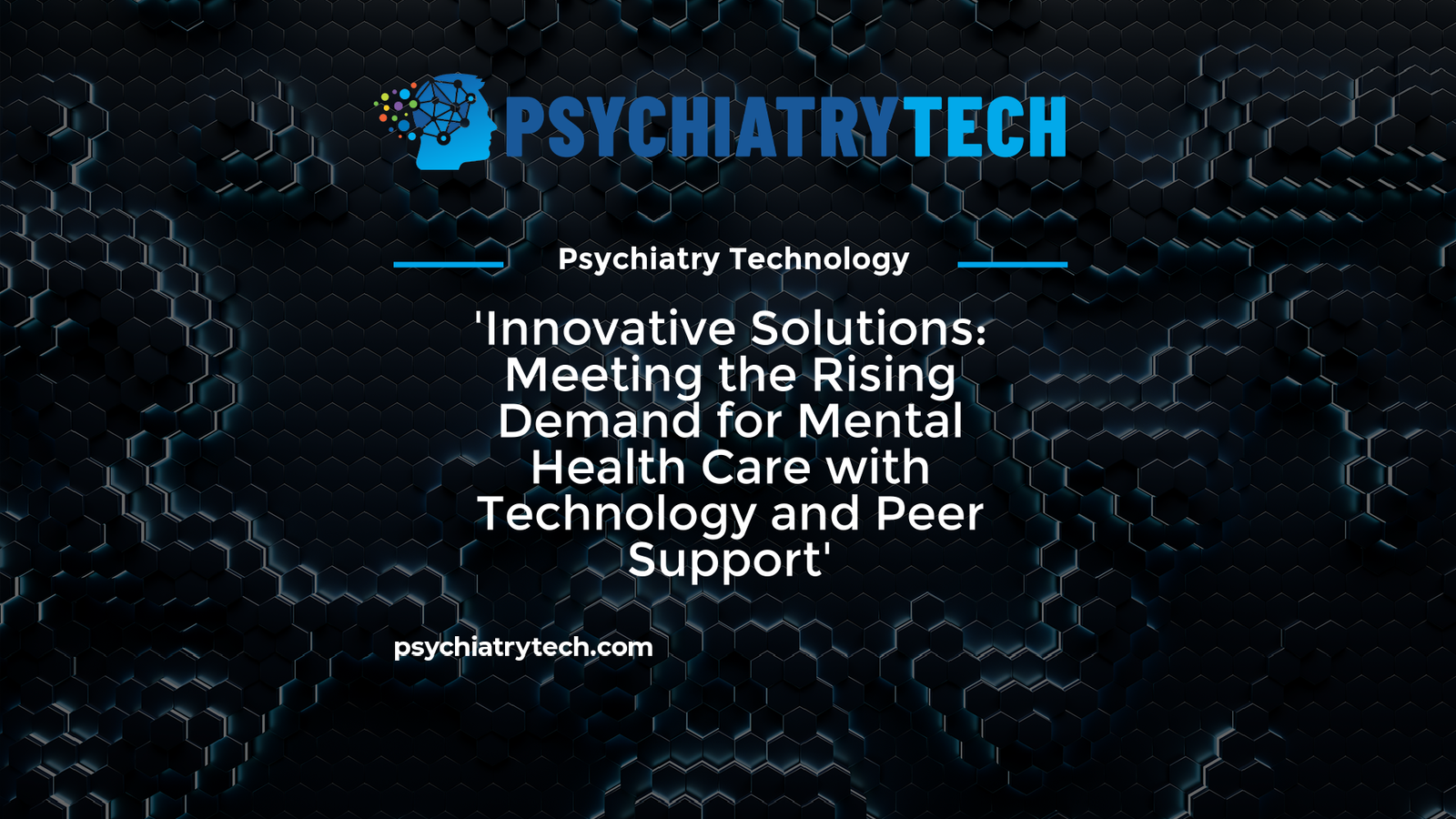Innovative Solutions: Meeting the Rising Demand for Mental Health Care with Technology and Peer Support
Mental health care has become a serious concern in recent years. With the increasing demand for accessible and efficient mental health services, it is imperative that healthcare professionals and technology enthusiasts work together to develop innovative solutions that can improve patient outcomes.

Discover The World's MOST COMPREHENSIVE Mental Health Assessment Platform
Efficiently assess your patients for 80+ possible conditions with a single dynamic, intuitive mental health assessment. As low as $12 per patient per year.
The American Psychological Association (APA) predicts some of the trends in mental health care access and delivery that we will see in the near future. One major trend is the emergence of technology and peer support as solutions for people who struggle to access traditional methods of care. These tools not only increase access to care but also improve the quality of the care being provided.
Advancements in Technology
Advancements in technology have brought some groundbreaking changes in the mental health industry. These innovations have helped in the detection, prevention, and treatment of mental health conditions. One technology innovation being used today is telepsychiatry, which offers remote mental health services to patients. This program uses videoconferencing technology to connect patients with mental health professionals. Telepsychiatry has been found to be as effective as traditional in-person therapy, according to a study published in the Journal of Clinical Psychiatry.
Another promising technology innovation is mobile mental health applications. These apps make it easier for people to access mental health care and monitor their mental health. Some of these apps even use artificial intelligence (AI) for personalized mental health care plans. This means that users can get tailored recommendations that fit their individual needs.
In addition, the use of virtual and augmented reality is also emerging as an innovative solution in psychiatry. These technologies can create immersive environments where patients can practice and learn new coping skills that can improve their mental and emotional wellbeing.
Peer Support
Peer support is another unconventional method that is gaining traction in the mental health industry. Peer support is a non-clinical, recovery-oriented practice that relies on shared experiences and a sense of shared humanity to provide social support and connection for individuals with mental health conditions.
Research has shown that peer support can enhance individuals’ self-esteem, sense of empowerment, and feelings of connectedness. Peer support can also reduce hospitalization rates and improve medication adherence, according to a 2019 study published in the Journal of Clinical Psychiatry.
Peer support can occur in various forms, including support groups and peer-led recovery programs. These programs provide a safe space for individuals to share their experiences, struggles, and triumphs in their recovery journeys. Peer support programs also offer opportunities to build a supportive community of people who understand the challenges of living with mental health conditions.
The Future of Mental Health Care
The use of technology and peer support in mental health services can revolutionize the way healthcare professionals think about mental health care delivery. These innovations have the potential to provide services to people who might not have the means to access traditional forms of care. Additionally, these tools can augment existing mental health services and improve patient outcomes.
It is essential for healthcare professionals to stay up-to-date on the latest technology and peer support developments and to collaborate with technology innovators to provide the best possible care for their patients. Psychiatrists, psychologists, and other mental health professionals can integrate these innovative solutions into their practice, offering their patients greater access to care, support, and education.
In Conclusion
Mental health is a growing concern, and it is imperative that healthcare professionals and technology enthusiasts work together to develop innovative solutions that can improve patient outcomes. The use of technology and peer support has the potential to increase access to care and improve the quality of care provided. Staying up-to-date on the latest developments in these fields can help enhance and augment existing mental health services.
What are your thoughts on these innovative solutions to meet the rising demand for mental health care? Share this post with your friends, colleagues, and family members to spread awareness about these advancements and how they can benefit those who need it most.

